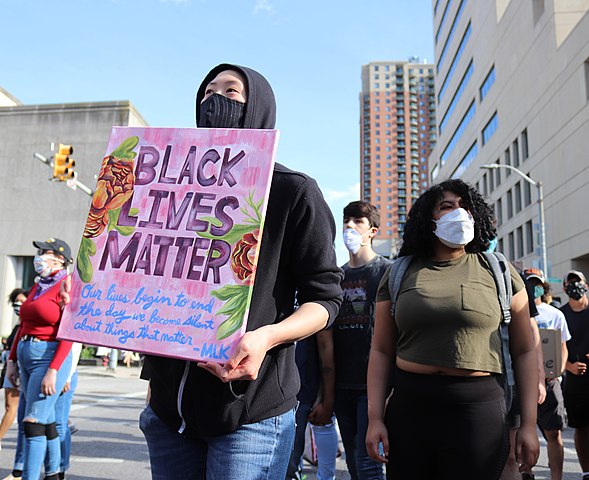
A Basic History of Racial Inequality in America: Part 3
This is the final part of my short historical series on racial inequality in America. You can read Part 1 here and Part 2 here.
1960/70s – The ‘War on Drugs’ and mass incarceration
In June 1971, President Nixon declared a ‘war on drugs’. He dramatically increased the size and presence of federal drug control agencies by enacting draconian policies such as mandatory minimum sentencing and no-knock warrants. It also bore the clear stamp of racial inequality. One of Nixon’s top advisers, John Ehrlichman, has since stated,
‘We [the US government] couldn’t make it illegal to be against the war or blacks, but by getting the public to associate the hippies with marijuana and blacks with heroin, and then criminalising both heavily, we could disrupt those communities. We could arrest their leaders, raid their homes, break up their meetings and vilify them night after night on the evening news. Did we know we were lying about the drugs? Of course we did.’
The drug war hysteria continued into the 1990s, with the number of people imprisoned for nonviolent drug law offences increasing from 50,000 in 1980 to over 400,000 in 1997. Incarceration rates continue to tell a powerful story of racial disparity today, as in 2018 black Americans were nearly six times more likely to be incarcerated for drug-related offences than their white counterparts, despite equal substance usage rates. In the same year, almost 80% of people serving time for a federal drug charge were black or Latino.
Perhaps most shockingly, one in three black men will end up in prison in contrast to 1 in 17 white men in America, despite black Americans making up only 13% of the US population. With many rights taken away after criminal convictions, leading historian Michelle Alexander argues that “Jim Crow” (see Part 2 of this series) lives on in a redesigned criminal justice system.
1992 – LA Riots
In 1991 Rodney King, a man on probation for robbery, led officers of the California Highway Patrol on a high speed chase after refusing to be pulled over. When the police caught up with him, four LAPD officers were caught on camera tazing and severely beating King. Though accused of police brutalty, the officers were found not guilty, causing great outrage and sparking four days of riots in Los Angeles with an estimated $1 billion worth of damage to the community.
Many racial inequality riots have occurred since 1992, with the Ferguson Riot of 2014-15, Charleston Church Massacre of 2015, and Charlotte Riot of 2016 being just three examples in recent years.
2008 – Barack Obama becomes 44th US President
Barack Obama became the first African American president of the United States upon his inauguration as the 44th president. He inspired thousands of new voters, many young and black, to cast their vote for the first time during the election and was re-elected in 2012.
2013 – 2020 – Black Lives Matter and police brutality
Coined in July 2013, ‘Black Lives Matter’ was first used by Alicia Garza in a Facebook post in response to the acquittal of George Zimmerman, a white man who shot and killed Trayvon Martin, an unarmed black teenager, in 2012. Along with other organizers, Garza formed the Black Lives Matter network, aiming to ‘eradicate white supremacy and build local power to intervene in violence inflicted on Black communities by the state and vigilantes.’
The BLM hashtag later appeared on Twitter and has since spread widely, with the movement’s message invoked in response to continual incidences of police brutality that disproportionately affect black communities. Of nearly 7,700 police killings since 2013, African Americans were three times more likely to be killed than white people and in 98.7% of cases, officers were not charged with any crime.
2020 – Death of George Floyd
On May 25th, police officer Derek Chauvin knelt on black civilian George Floyd’s neck for over 8 minutes, crushing his windpipe and starving him of oxygen, after having accused Floyd of producing a counterfeit $20 note to pay for his groceries. The incident was filmed and the video went viral on social media, which has re-energised the fight against racial oppression around the world.
Despite difficulties posed by the Coronavirus pandemic, protesters gathered to demand justice in over 50 countries. Protests continued for weeks in some US cities.
As well as protests, online petitions and public outrage have created positive change. All four officers involved in George Floyd’s death were fired, with Chauvin charged with second-degree murder, third-degree murder and second-degree manslaughter. The three officers also present at the scene were charged with aiding and abetting murder.
However, we still have a long way to go in tackling the centuries of systemic racism so deeply engrained in societies not just in America but all across the world, the UK included.
Final word
In order to fully appreciate how and why we have arrived at the situation we face today it is absolutely essential to understand a basic history of American race relations. Whilst this series of blogs is by no means an exhaustive timeline of events, I hope it has contributed towards your understanding of the current situation in some way.
I also hope that this series has inspired you to read further, as the heartbreaking events of past weeks have highlighted that we must all spend time educating ourselves, spreading awareness of racial inequality, and discussing ideas with friends and family who might not have access to the powerful resources being shared online.
If anything in this blog has been inaccurately represented, has caused offense or needs amending, please do not hesitate to get in touch. I’ve researched many of these events and ideas as part of my degree but am far from an expert, and am always keen to educate myself further too.
Recommendations:
Why I’m No Longer Talking to White People about Race – Reni Eddo-Lodge
The New Jim Crow – Michelle Alexander
How to be an Antiracist – Ibram X. Kendi
Me and White Supremacy – Layla F Saad
I Know Why the Caged Birds Sing – Maya Angelou
The 13th – Netflix
When They See Us – Netflix
Time: The Kalief Browder Story – Netflix
